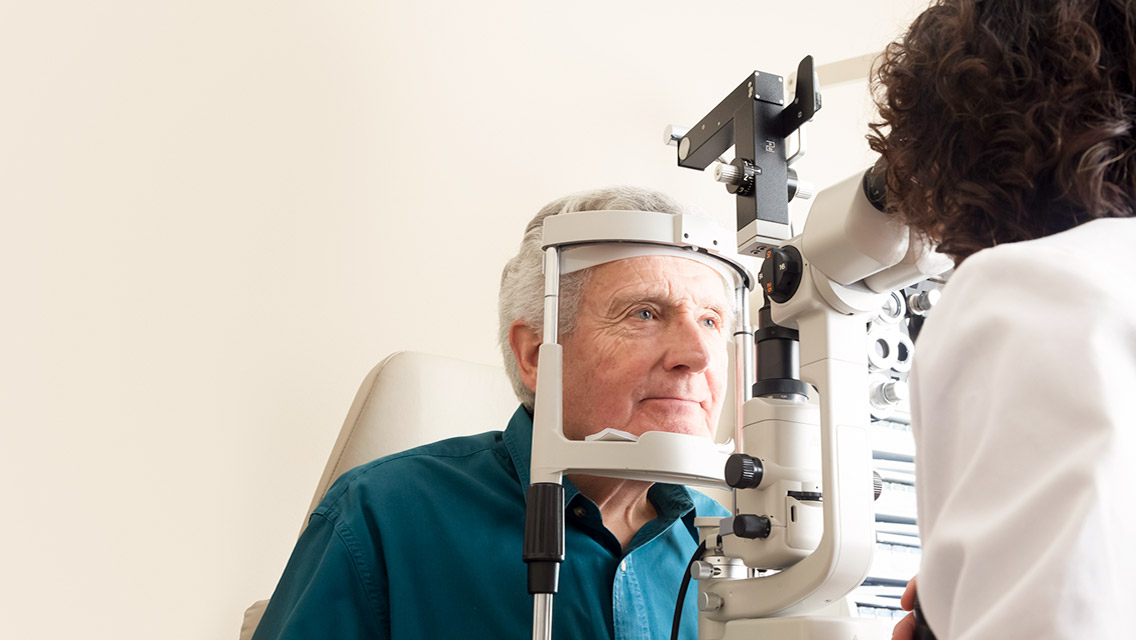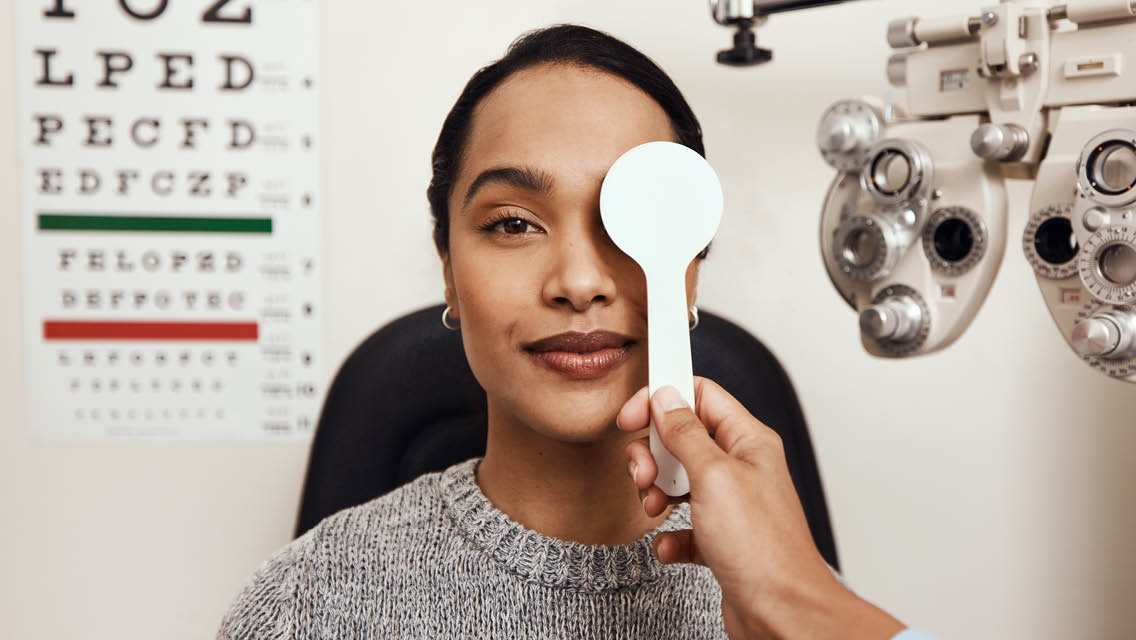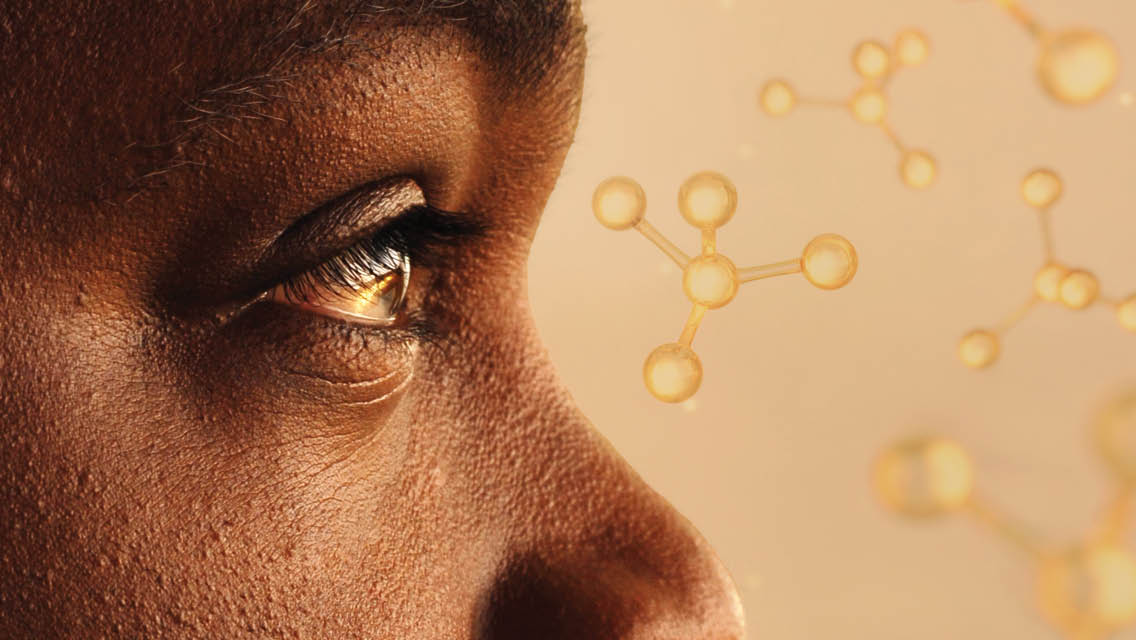I arrived at my eye doctor’s office the other day with the same sort of blurry ambivalence that typically characterizes these visits. You may know the drill: answer some benign questions about your general health, squint through various optical lenses while trying to read the small print on the eye chart, submit to the drops that dilate your eyes for closer examination, and exit wearing a pair of sunglasses. Unless you’re struggling with some serious vision issues, it can seem like a waste of time.
It appears I’m not the only senior who holds this view. If recent research is any indication, my contemporaries and I share a particularly puzzling approach to eye health. Many of us fear losing our sight more than any other affliction, yet we tend to turn a blind eye toward the various screenings and treatments that reliably prevent its occurrence.
The results of a study released in June by the nonprofit Prevent Blindness found that one in four respondents 55 and older who were at risk for retinal diseases had delayed seeking appropriate care. Those results mirror the findings of a 2018 University of Michigan/AARP poll reporting that nearly one in five older adults hadn’t seen an eye doctor for three years or more. “There is significantly less of an emphasis placed on eye health than there is on general health,” Rohit Varma, MD, MPH, founding director of the Southern California Eye Institute, tells Kaiser Health News.
Because vision impairment is gradual and generally painless, Varma explains, seniors are prone to overlook its implications. “People get used to it, and as they age, they begin to feel, ‘Oh, this is a normal part of aging and it’s OK.’”
But cataracts, which can cause blindness, aren’t OK, and they are endemic among people 75 and older, affecting about half of that age group nationwide. And macular degeneration carries similar risks while afflicting some 20 million Americans over the age of 40. Another 10 million struggle with diabetic retinopathy, and about 3 million more suffer from glaucoma.
It’s not that older adults intentionally ignore these vision problems; there are accessibility issues, as well: Traditional Medicare doesn’t cover eye care, and coverage by Advantage Plans is sketchy at best. “Just because people know they need care doesn’t necessarily mean they can afford it or that they have access to it,” notes Prevent Blindness CEO Jeff Todd.
And it seldom comes up when seniors visit their physicians. Nearly six in 10 of those polled in the University of Michigan/AARP survey reported that their doctors hadn’t inquired about their vision at their regular medical appointments. That’s not surprising when you consider that many seniors arrive with myriad chronic illnesses, and doctors often consult under duress. But Joshua Ehrlich, MD, MPH, an assistant professor of ophthalmology and visual sciences at U-M Health Kellogg Eye Center, argues that physicians could work more closely with eye care specialists when treating patients whose conditions — such as diabetes — threaten their eyesight as well as their overall health.
Such a collaboration could help establish a clearer connection between our vision and our well-being. After all, as Alison Bryant, PhD, former senior vice president of research at AARP, puts it, “Vision loss affects an older adult’s overall health, risk of falling, social interactions, and quality of life.”
And, as I learned the other day from my eye doctor, physiological changes can impact our vision in ways we may not understand. He displayed an image from inside my eye and explained how he would need to monitor the blood vessels there as a result of my recent hypertensive crisis. Chronically high blood pressure, he explained, can damage more than my heart — it could mess with my eyesight as well.
This was news to me; my regular doctor hadn’t mentioned such a risk. So, I left my eye doctor’s office after promising to return in six months to revisit those blood vessels — and my slowly emerging cataracts — while continuing to take my blood pressure medications. It was, I had to admit, a pretty eye-opening session.





This Post Has 0 Comments